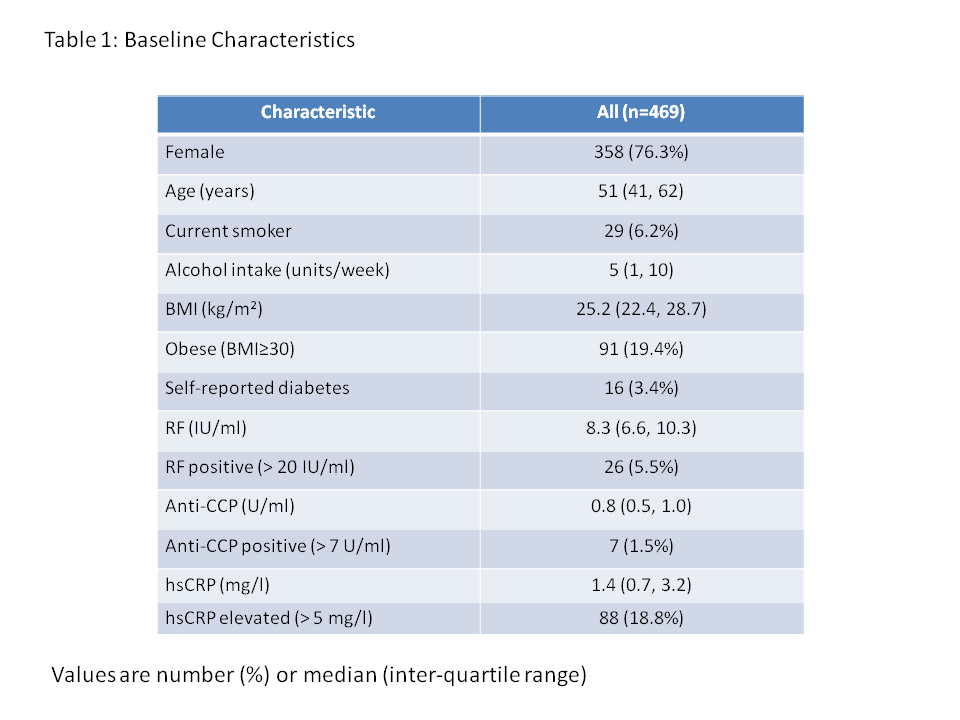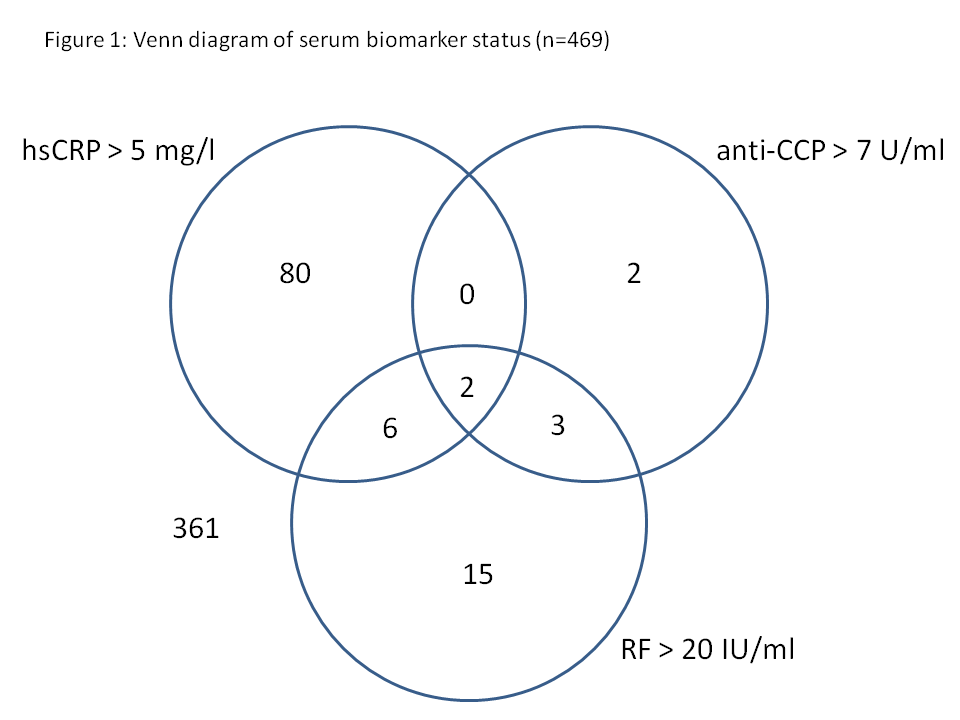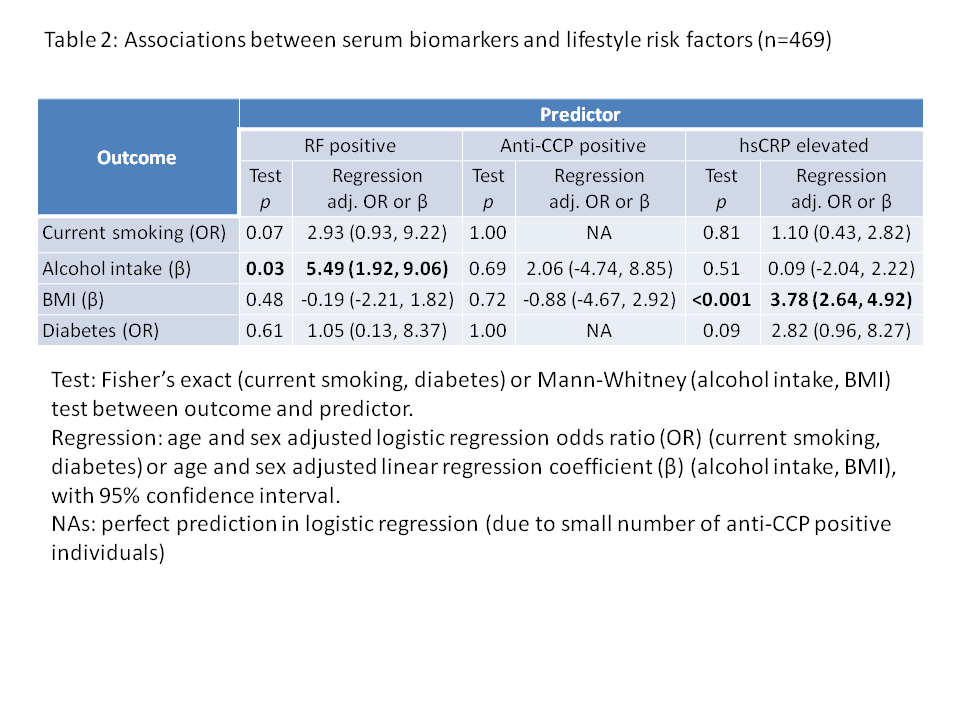Session Information
Session Type: ACR Concurrent Abstract Session
Session Time: 2:30PM-4:00PM
Background/Purpose:
Rheumatoid
factor (RF), anti-cyclic citrullinated peptide antibodies (anti-CCP) and
C-reactive protein (CRP) are known serum biomarkers of inflammatory arthritis
(IA) and have potential predictive value in high risk groups. We measured RF,
anti-CCP and CRP levels in the PRe-clinical EValuation of Novel Targets in RA
(PREVeNT RA) study, a register of first degree relatives (FDRs) of patients
with rheumatoid arthritis (RA), and assessed their associations with known
lifestyle risk factors for IA. The aim of PREVeNT RA is to study FDRs of RA
patients to identify risk factors for developing RA and so help inform the
development of interventions for preventing RA.
Methods:
FDRs
of patients with established RA are being recruited from across the UK. FDRs
are free of IA and >30 years old at time of recruitment. Following informed
consent, participants complete an online questionnaire to ascertain lifestyle
factors potentially associated with risk of RA and provide a blood sample for
central storage and analysis. For this study, we measured RF (normal ≤20
IU/ml), anti-CCP (normal ≤7 U/ml) and high sensitivity (hs) CRP (normal ≤5
mg/l) on FDRs recruited up to April 2015. Associations between these biomarkers
and current smoking status, alcohol intake (units/week), body mass index (BMI,
kg/m2 – derived from self-reported height and weight) and
self-reported diabetes were assessed with Fisher’s exact or Mann-Whitney tests,
then adjusted for age and sex with multiple logistic or linear regression.
Results:
Complete
data were available for 469 participants. Baseline characteristics are shown in
Table 1 and overlap in biomarker status is shown in Figure 1. Associations
between biomarkers and lifestyle risk factors are shown in Table 2. On average,
RF positive participants drank 5.49 (95% CI (1.92, 9.06)) more units of alcohol
a week and those with elevated CRP had a 3.78 kg/m2 (95% CI (2.64,
4.92)) higher BMI.
In
this FDR cohort lifestyle factors associated with future onset of IA were also
associated with biomarkers of serological risk and low-grade inflammation.
These initial results suggest that early targeting of ‘at risk’ lifestyle
factors may, at a population level, reduce future risk of RA onset.
To cite this abstract in AMA style:
Sergeant JC. Serum Biomarkers of Inflammatory Arthritis in First Degree Relatives of Patients with Rheumatoid Arthritis and Their Association with Lifestyle Risk Factors [abstract]. Arthritis Rheumatol. 2015; 67 (suppl 10). https://acrabstracts.org/abstract/serum-biomarkers-of-inflammatory-arthritis-in-first-degree-relatives-of-patients-with-rheumatoid-arthritis-and-their-association-with-lifestyle-risk-factors/. Accessed .« Back to 2015 ACR/ARHP Annual Meeting
ACR Meeting Abstracts - https://acrabstracts.org/abstract/serum-biomarkers-of-inflammatory-arthritis-in-first-degree-relatives-of-patients-with-rheumatoid-arthritis-and-their-association-with-lifestyle-risk-factors/



